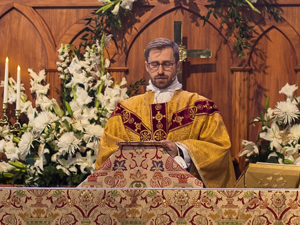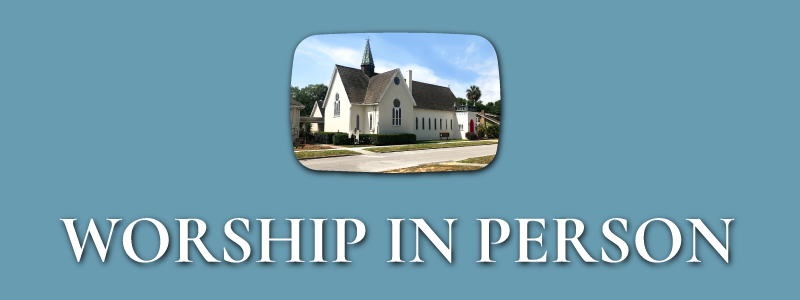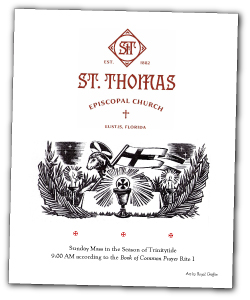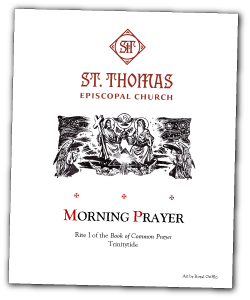“God purposes to unite mankind through a particular people, and to unite them, not in a program of philanthropic and social progress, but in the worship of Himself. The end for which He has created men is that all their activities shall become an act of praise toward the perfect and eternal God.”
– Abp. Michael Ramsey, The Gospel and the Catholic Church
 The Anglican tradition, influenced by the Benedictine monastic tradition, upholds a threefold rule of worship of Almighty God that we at St. Thomas seek to uphold.
The Anglican tradition, influenced by the Benedictine monastic tradition, upholds a threefold rule of worship of Almighty God that we at St. Thomas seek to uphold.
Come encounter God with us at St. Thomas. Every week multiple opportunities are offered to worship Almighty God in the beauty of holiness. At the Mass, all baptized Christians who have examined their conscience and desire the Body and Blood of Christ are welcome to receive.
Since the earliest days of the Church, Christians have taken seriously Christ’s command at the Last Supper to celebrate the sacrament he instituted. Known by many names: the Holy Mass, the Holy Eucharist, the Holy Communion, and the Supper of our Lord, in it we offer our prayers and praises to Almighty God, participate in the one sacrifice of Christ, and receive from him his Body and Blood for the forgiveness of our sins and to draw us deeper into union with him.
We worship using the liturgies of the Book of Common Prayer, a liturgical tradition first compiled by Thomas Cranmer in 1549, but dating back much further with ancient prayers rendered into an elevated and elegant form of English suitable for offering praise to God. These services represent ancient modes of worship as they have been received in the English speaking world.
Worship at St. Thomas is incarnational, that is to say we worship bodily. Worship involves sitting, standing, kneeling, bowing, making the sign of the cross, and may involve the use of light and incense to help our whole body and senses participate in worship. If this has not been a part of your Christian journey, it may take a little bit of getting used to. If you have any questions about why we do certain things, feel free to speak with the Rector after the Mass, and he would be delighted to help explain how our traditions come to us.
The Holy Mass
The principal form of worship in the Church is the celebration of the Holy Mass. As early as 150 AD, the Mass was described in a similar form to what we practice today as the normative practice for the gathering of the Church on Sunday, with readings from the Scriptures, preaching, and the celebration of the Sacrament of the Holy Eucharist. At St. Thomas, we follow in that tradition holding up the Mass as our principal form of worship, participating in Christ’s sacrifice and offering of himself to the Father.
Worship at St. Thomas seeks to be joyful, authentic, and fulsome. We worship God with all our heart, soul, mind, and strength. To do so, we use beautiful and historic language, singing, ceremonial actions such as bowing, kneeling, or making the sign of the cross, and incense. This seeks to engage the senses to draw us more deeply, body and soul, into offering ourselves to the Father in the beauty of holiness.
The Daily Office
Stemming from the monastic offices, the Daily Office is a treasure of the Anglican Prayer Book heritage. It comprises principally a service of Morning Prayer and Evening Prayer, rooted in the proclamation and recitation of Holy Scripture. The majority of the prayers and texts used in these services are direct quotations from Scripture as well. There is also a tradition of singing the evening office. When it is sung, it is often called Choral Evensong and is a noted distinctive of Anglican worship practice.
Personal Devotion
Personal and corporate devotion is done as an offering of worship to God. At St. Thomas, we take seriously St. Paul’s exhortation to do all that you do to the glory of God. (I Corinthians 10:31) This includes prayer, singing in the car, reading Scripture, gathering in small groups, and everything in between. Together we work towards making everything we do, our whole lives, an act of worship to Almighty God.






